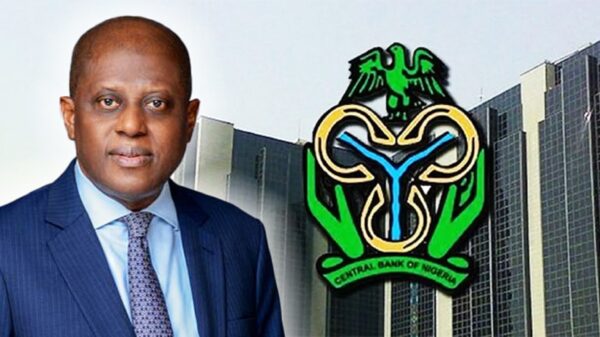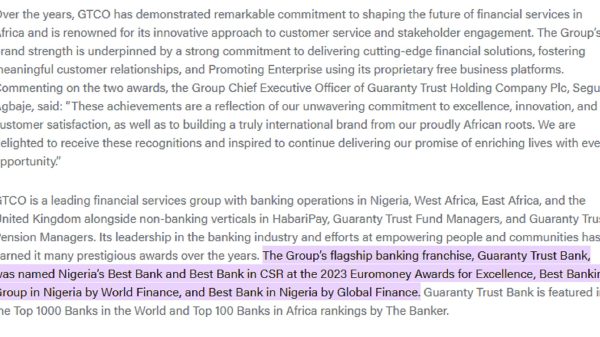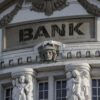Nigeria is experiencing significant economic shifts, with inflation and bank recapitalization taking center stage. These changes offer unique investment opportunities, even amid challenges.
This article thoroughly explores these topics, providing insights into Nigeria’s economic landscape and potential investment avenues.
Understanding Nigeria’s Inflation
Inflation in Nigeria has been a persistent issue, affecting the purchasing power of citizens and the overall economy. Recently, there have been signs that inflation is subsiding. This development is crucial, as it influences various economic activities and decisions.
Global Influences on Inflation
Inflation is not only a local issue but also a global one. For instance, oil prices significantly impact inflation. Recently, oil prices rose nearly 1% from a two-month low. This rise is attributed to bullish US economic and crude storage data, balancing against forecasts of weaker global oil demand growth by the International Energy Agency (IEA).
The United States’ inflation numbers also play a role. When US inflation showed signs of tapering, it influenced global markets, including Nigeria. A lower-than-expected increase in US consumer prices suggested that inflation might resume its downward trend. If the US cuts interest rates later this year, it could increase demand for crude oil, subsequently driving up prices.
Local Inflation Trends
In Nigeria, recent inflation numbers have shown a decline, a positive development. For instance, the headline inflation rate decreased month-on-month, indicating that inflationary pressures might reduce.
This decline is partly due to various factors, including the start of domestic petroleum refining by Dangote, which is expected to reduce energy costs, a significant factor driving inflation.
The Role of Monetary and Fiscal Policies
The Central Bank of Nigeria (CBN) has used tight monetary policies to combat inflation. However, there are calls for the CBN to pause its tightening measures to help businesses recover. The Center for Promotion of Private Enterprises (CPPE) suggests fiscal policies should address supply-side inflation factors.
Additionally, international financial institutions are also playing a role. The International Monetary Fund (IMF) and the African Development Bank (AfDB) have approved the use of Special Drawing Rights (SDRs) for hybrid capital instruments. This move aims to leverage these instruments to finance social and climate projects, potentially addressing some of the underlying causes of inflation.
Bank Recapitalization: An Investment Opportunity
One of the significant economic activities in Nigeria is the ongoing bank recapitalization process. The Central Bank of Nigeria (CBN) has mandated banks to increase their capital buffers. This directive is expected to strengthen the financial sector and create investment opportunities.
The Recapitalization Process
Banks in Nigeria are required to raise their capital buffers significantly. Regional banks need to increase their capital to 50 billion Naira, national banks to 100 billion Naira, and banks with national licenses to 200 billion Naira. This process, spread over two years, will see banks raise about 4 trillion Naira.
Investment opportunities arise as banks seek to meet these new capital requirements. Investors can buy shares in these banks, benefiting from the recapitalization process. This scenario is reminiscent of the 2004–2005 recapitalization period, where many banks merged or raised capital, leading to a more robust financial sector.
Risks and Considerations
Investors must be cautious and discerning when choosing which banks to invest in. While larger banks with international licenses might be more stable, smaller banks could offer higher returns but come with more risk. It’s essential to assess each bank’s value proposition and future outlook.
Mergers and acquisitions are likely, as banks that cannot meet the recapitalization requirements might combine with others. This consolidation can create more stable and competitive banks, offering additional investment opportunities.
Economic Implications
The recapitalization of banks is expected to have several positive effects on Nigeria’s economy. A more robust financial sector will increase credit availability, supporting economic growth. Additionally, the increased stability and capital in the banking sector will enhance investor confidence, attracting more foreign and domestic investments.
Credit to GDP Ratio
Nigeria’s credit-to-GDP ratio is currently about 14–15%, significantly lower than the sub-Saharan African average of 47% and much lower than that of developed markets like the UK, where it’s over 100%. Increasing this ratio through bank recapitalization will enhance the financial sector’s ability to support economic activities.
Total Banking Assets
Similarly, Nigeria’s total banking assets to GDP ratio is about 15–16%, compared to Kenya’s 47% and South Africa’s 74%. Increasing the capital in the banking sector will help improve this ratio, contributing to a more robust and resilient economy.
Investment Opportunities
The recapitalization process offers various investment opportunities. Investors can look at buying bank shares, particularly those likely to meet the new capital requirements. Additionally, the process opens up opportunities in the capital market as banks will issue new shares or bonds to raise the required capital.
Capital Market Readiness
The Nigerian capital market is gearing up for the influx of activities from the bank recapitalization process. Investment firms, asset managers, and other financial services providers are positioning themselves to exploit the opportunities. For instance, United Capital, a leading investment banking firm, is well-prepared to support banks in raising the necessary capital.
Conclusion
Nigeria’s economic landscape is undergoing significant changes, with inflation showing signs of subsiding and banks undergoing recapitalization. These changes present unique investment opportunities, particularly in the financial sector.
Investors must stay informed and make strategic decisions to benefit from these developments. With careful consideration and suitable investments, the current economic shifts can yield substantial returns and contribute to Nigeria’s overall economic growth.






















































You must be logged in to post a comment Login